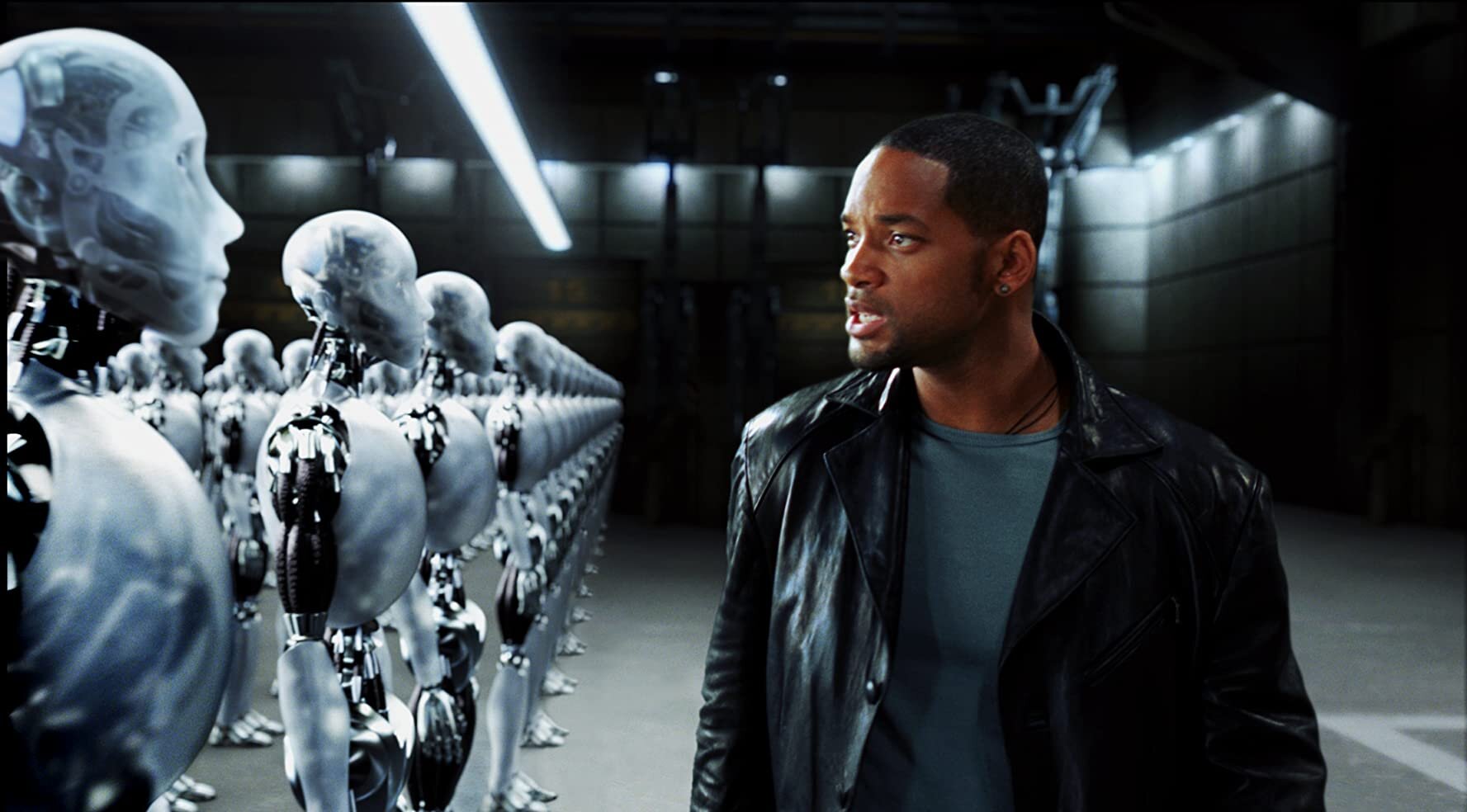Will Smith Retrospective
Very few careers offer as much variance as Will Smith’s. His roles have oscillated between funny man, action star and serious thespian. It takes tremendous range to play everyone from boxing legend, Muhammad Ali, to an animated blue genie, but Will Smith did it all. He’s been a sprinkler—consistently putting out projects that fly in all directions and mostly land on solid ground. Minus a few genuine misfires (lookin’ at you Bright and Seven Pounds), he has made consistently solid middle-brow entertainment that gets butts in seats.
And as one of Hollywood’s most bankable talents, he may be the last star in Hollywood who can get anything he wants made. For nearly two decades, Will Smith on a movie poster meant you were guaranteed +$100M at the box office. At one point, he had eight consecutive films gross more than that figure; an incredible run. The only real comparable career as far as box office success is that of Tom Cruise and Will Smith has certainly had a more varied run.
But what if he had done more? As we consider his career, is it possible he left something on the table? Yes, he is as successful as it gets and has hundreds of millions of dollars to show for it. But some of his choices along the way suggest that he could have done, and may still do, even more with his talent.
Will Smith as Funny Man
After becoming a multi-platinum rapper in the late 80s, Smith became more of household name on NBC’s The Fresh Prince of Bel Air. From the beginning, America was in love. The show centered on Smith’s ability to be charming and funny—characteristics he has used to great effect throughout his career. Because of that, it can sometimes be difficult to nail down exactly how to categorize some of his movies.
The first time we saw Smith bare his comedic chops on the big screen was opposite Martin Lawrence in Bad Boys. The pair were electric in a way that led to a sequel laden franchise and hundreds of millions of dollars. For my money, they range in quality, but what cannot be argued is that Will Smith’s swagged out Mike Lowrey is why they work at all. He is just the right blend of machismo and straight man next to the wacky Lawrence. When Smith is at his best, he’s getting to be cool even as he delivers the laughs.
Contrast that with the somewhat sillier Men In Black franchise and it’s easy to see why this isn’t exactly my favorite lane for his all-star talent. The original Men In Black film mostly works—with Smith and veteran supporting actor Tommy Lee Jones. As the series went on, however, the formula got stale and tried to rely purely on Smith’s star power. And while that will get you box office (most of the time), it usually won’t get you a good movie.
Cut to Wild Wild West—the much derided joke of a movie that should have died on some writer’s sketch pad. It features a cheeky brand of comedy that doesn’t align with Smith’s strengths. And like a suit that doesn’t fit, the entire exercise is a bad look. If you watch it today, it would be easy to see it as dated and stale—but even in the moment, people were pretty much united in mocking it. The only upside to its existence is a soundtrack with a couple of bangers and a warning to the next creatives who want to mash together concepts the way it does.
If you ask me, Smith’s single best effort in this lane is 2005’s Hitch. The film seems custom made to suit his talents and relies more on his charm than ability to be “funny funny.” He gets to be a ladies man who makes a living helping men land women. Perfect. This is the kind of character he seems born to play. Be cool, make guys want to be you and make ladies want to be with you. $368M at the box office later, the world agreed.
Will Smith as Thespian
In some ways, this is the craziest category. Mostly, because Will Smith has never been in a great movie— with “great” meaning an enduring classic that might be preserved for its quality rather than simply its cultural significance. Many of his most serious efforts have been his most confoundingly bad. It is in this area where he has most underachieved despite seemingly wanting to hit the mark.
His serious skill as an actor was first on display in 1993’s Six Degrees of Separation, where Smith’s unwillingness to perform the same sex kiss is his only regret. But after that, there was no doubt he was at least a competent actor.
After a string of big budget hits in the late 90s, Smith started angling toward serious dramas like The Legend of Bagger Vance and Ali, with only the latter being worth discussing. While the former is a nonsense misfire that is wrong on race, sports and storytelling, the latter should have been the greatest movie of all time. They actually represent opposite sides of an interesting coin given Muhammad Ali’s stature as a civil rights icon and Bagger Vance’s status as woebegone shorthand for the “Magic Negro,” largely ignoring any racial reality.
Ali is written and directed by Michael Mann, shot by the legendary Chivo Lubezki, covers some of the most fertile ground in cultural history and stars a litany high profile names, including Jamie Foxx, Jon Voight, Smith’s wife, Jada Pinkett Smith, and Smith himself at the peak of his powers. It had everything it needed. Except it didn’t. While it would become Smith’s first Oscar nomination, it wasn’t much more than just another serious drama documenting the life of a famous person. The performance was good, the film was good; just not the transcendent knockout that would define a career.
His best work in this category is probably in The Pursuit of Happyness, where he plays a down on his luck father who works his way up from the dredges of homelessness into a successful business career. It allowed Smith to work the tear ducts and earned him his second Oscar nomination. Unfortunately, his subsequent serious efforts like Seven Pounds and Concussion were marred by either lackluster or ridiculous scripts. Smith has shown decidedly poor taste in selecting prestige projects, but hopefully that changes this year as he is set to play Richard Williams, father of Venus and Serena Williams in King Richard.
Interestingly, both of Smith’s Oscar defeats came at the hands of Black actors he could use as a model for the back half of his career. In 2002 he lost to Denzel Washington in Training Day and in 2007, he lost to Forest Whitaker in The Last King of Scotland. Washington in particular seems like a perfect model because they both have the same kind of talent—that do anything charm that can be turned into gold with the right filmmaker. Here’s hoping a Quentin Tarantino, Paul Thomas Anderson or Barry Jenkins has Smith’s number.
Famously, he passed up on Jamie Foxx’s role in Django Unchained, likely thinking the role was too edgy for his relatively clean cut image. But it is that sort of thinking that is most disappointing. It is precisely because he didn’t take chances like that this section is so lackluster. Luckily, this is an area he can continue to build well into old age.
Will Smith as Action Hero
Think of this category as the kind of film where characters are turned into little plastic men with detachable arms. Things blow up, worlds are saved or ended and muscles are flexed. They generally feature braggadocios taglines like “This time it’s personal,” and “Enough is enough.” This is the area where Smith has reached his fullest potential—starting with Independence Day.
Given that he was a rapper turned TV star, there were not a lot of precedents for Will Smith. So executives at 20th Century Fox couldn’t have known exactly how things would play out when they cast him as the planet-saving Marine Pilot, Captain Stephen Hiller. The role was so different from anything he had done up to that point that it was hard to map any of it onto this. But there he was. Jumpsuit, shades and overflowing charisma. If anyone wanted to understand how he became the biggest box office draw in Hollywood, this 145 minutes would be all that would needed. That swaggering bravado grossed over $800 million dollars and spawned countless also-ran disaster knockoffs like Armageddon and Deep Impact. Its impact can even be seen in modern blockbusters like The Avengers and San Andreas. Smith made this wave what it is.
Through I, Robot, I Am Legend and Hancock, Smith helped usher in the big budget landscape we have now. You can draw a direct line from Hancock, which though comedic, was brooding and dark, to contemporary blockbusters like Deadpool. Likewise, there are strains of I Am Legend in features that followed, like Brad Pitt’s World War Z. And I, Robot fits squarely in the legacy of the Terminator franchise and serves as a bridge between those films and the modern reboot of the The Planet of the Apes franchise. Wherever you look, Will Smith’s DNA runs throughout what we now know as blockbuster entertainment. It is for that reason that he is arguably one of the two or three most important figures in 21st century Hollywood.
Most recently, Smith found himself in this lane in Ang Lee’s Gemini Man. The film had grand ambitions and utilized technology that pushed the envelope, but it ultimately just felt like a dizzying theme park ride. Smith’s performance, however, had nothing to do with why the film didn’t work. In fact, we might look back at it as a fitting appetizer to his denouement—as the film asks an older version of his character to grapple with a younger version. Smith’s acting career might be entering an appropriately analogous phase.
Conclusion
Look, Will Smith is Shaq. He could have been the Greatest of All-Time. Instead, we have to settle for 85% of that. Still a tremendous feat, but it would be hard to argue he hit his ceiling.
Fortunately, at 51 years old, he has a lot of career still in front of him—if he wants it. Many actors perform deep into their 70s, so there’s no reason he won’t find a late career renaissance that takes him even higher. But doing so will mean making smart choices and finding a new stride. Hopefully he takes a different path the Tom Cruise, who has Mission Impossible movies scheduled through his 60th birthday. Oof.
______________
If you like our content, please SHARE using the buttons below and SIGN UP for our monthly newsletter to stay up to date on the latest!















